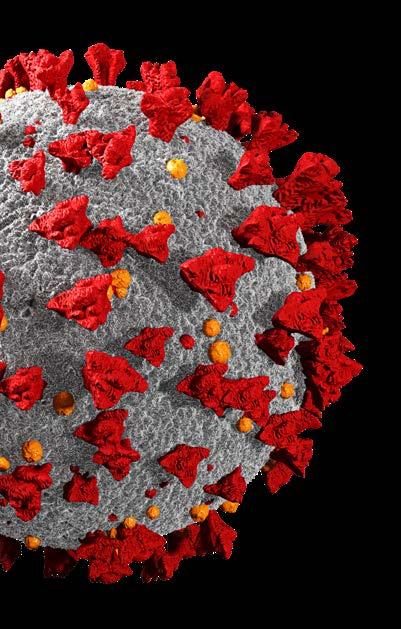
3 minute read
MIRA’s response to COVID-19
The COVID-19 pandemic dominated much of 2020, severely impacting the lives of many older adults worldwide. Physical distancing guidelines recommended by McMaster University meant much research was put on hold. However, despite the challenges presented by the emergence of COVID-19 and ensuing interruptions to workflow, MIRA achieved many of its objectives set out for 2020. MIRA strategically delayed the development of some initiatives, but supported new opportunities created by COVID-19. With pre-existing strengths in research in aging and community engagement, MIRA shifted focus quickly and responded to the demands of the COVID-19 pandemic, while also supporting older adults from a distance.
The following are some of the initiatives MIRA, its researchers and its associated platforms in aging research have taken to address the COVID-19 pandemic:
Advertisement
Adjusted funding offerings to align with the current landscape. This included modifying the Graduate Travel Award to become a Professional Development Award and the creation of a LCMA COVID-19 Grant, which focuses on mobility in aging within the context of the COVID-19 pandemic. MIRA also provided funded researchers and trainees with an initial six-month, no-cost extension, followed by an additional six-month, no-cost extension.
MIRA administered a survey to its members and trainees to find out how the pandemic had affected them and how we can support them. This survey was then adapted and used by the Faculty of Health Sciences.
Using the data collected in the member survey, MIRA launched an Idea Exchange series to explore concerns and challenges faced by researchers during the COVID-19 pandemic. These virtual brainstorming sessions help determine the best ways to move forward and continue supporting research in aging during challenging times and in the future. In response to feedback from these sessions, MIRA is developing a resource summary and space for researchers to share ideas about managing programs of research while working remotely and under restrictions.
Created a resource guide, highlighting ways to engage and support older adults during the pandemic, and provided this guide to stakeholders who conduct patient-oriented research through the MIRA | Collaborative for Health & Aging.
The McMaster Optimal Aging Portal is highlighting ways to stay active and engaged while practicing physical distancing during the current COVID-19 pandemic.
A multi-disciplinary team of researchers led by MIRA Scientific Director Parminder Raina and Andrea Gonzalez have launched the InHamilton COVID-19 study, to explore how people who work and/or live in Hamilton have been impacted by the COVID-19 health crisis. This study aims to understand how people are responding to the crisis and will use this data to better identify strengths and opportunities for growth in the current pandemic response.
The Canadian Longitudinal Study on Aging (CLSA) launched a COVID-19 study to its 50,000 participants across Canada. Over the next six months, the CLSA will collect data from its participants through online and telephone surveys to gain a comprehensive picture of the spread and impact of the pandemic. The study is examining the experiences of older adults during the coronavirus pandemic, exploring how they cope, the impacts on their physical and mental health, and changes to how they access health care services. This data will provide us with a national perspective of the impact of COVID-19 on older adults. Funding for this study is provided by MIRA, McMaster University and the Juravinski Research Institute through a new gift for research on the pandemic from Hamilton philanthropists Charles and Margaret Juravinski.
MIRA developed a new initiative called “Staying safe and healthy at home”, an evidence and resourcebased proposal aimed at supporting older adults during COVID-19. Through the training of staff and volunteers, this initiative aims to connect the community to reliable, verified and up-to-date information during the pandemic through the McMaster Optimal Aging Portal. This proposal has been shared with government agencies and we are actively seeking external funding support.










